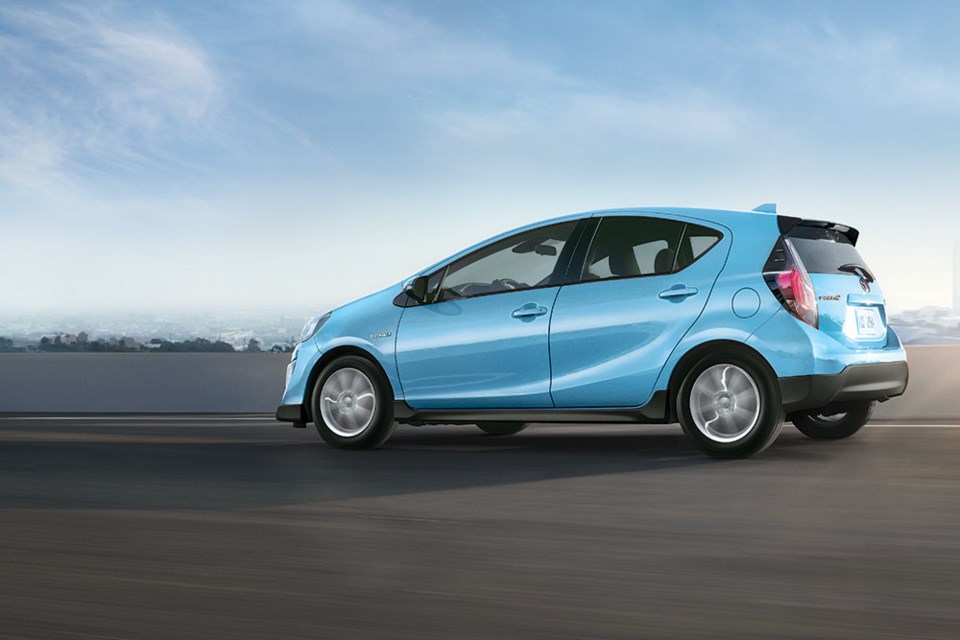You’ve eyed the sleek designs, read the reviews and reports, picked out the colour in your mind’s eye, and hit every auto mall within Saturday striking distance.
Now, the decision about which new car to buy just comes down to sticker price, right? Not so fast.
The true cost of owning a vehicle is more than what you pay to drive it off the lot – especially when comparing gasoline and hybrid models.
Price vs. value
Once the popular choice solely for high-mileage cab drivers and eco-conscious commuters, hybrids — vehicles powered by both an electric motor and a conventional engine (gasoline or diesel) — have gone mainstream. Their fuel-sipping ways and cleaner-air emissions are appealing. And they’re good-looking, to boot.
But when shopping for a new car, many consumers still bump up against a common misconception about hybrids: they’re too expensive.
In fact, when hybrids are compared to strictly gasoline-fueled models, the prices are similar.
For example, the Toyota Camry Hybrid has an MSRP of $31,585, while a comparably equipped gas-engine Camry XSE is $31,040. Hybrids also typically come decked out with Bluetooth connectivity, quality sound systems, upgraded interior materials and components, and larger tires and rims.
At the compact price point, the Toyota Prius c is the lowest-cost hybrid in sa���ʴ�ý, starting at $23,790 (including freight and PDI).
In the showroom, it’s true hybrids usually have a higher price affixed to the windshield than their gas-only counterparts.
Outside the dealership, however, where the rubber hits the road, it’s important to evaluate the whole car-owning experience. In addition to asking price, relevant factors include retention values, cost of maintenance and repairs, fuel savings and environmental impacts of your new ride.
Goodbye gas stations, hello open road
For those who find fueling up a necessary annoyance, the extended time between gas station visits a hybrid provides will be a boon. After all, when a hybrid is running on the electric motor’s power, it consumes no fuel.
According to consumer reports, most hybrid vehicles have better fuel economy than their gas-only counterparts, usually logging almost twice the kilometres to the tank.
With gas prices continuing to rise in sa���ʴ�ý, more people are choosing hybrids for their exceptional fuel efficiency alone.
Protecting the planet
The benefits of hybrids go beyond your personal use. By choosing a hybrid, which depends less on fossil fuels, you’ll be helping to reduce the demand and price of gas in the domestic market.
Another checkmark in the healthier Earth column are hybrids’ quieter ride and lower greenhouse gas emissions. A typical hybrid produces 90 per cent fewer tailpipe emissions, such as CO2, than a traditional vehicle. When operating in full electric mode, hybrids emit zero greenhouse gases.
Frugal fixes
Because of the way hybrid vehicles work, in addition to fuel savings, maintenance costs are usually lower than gas-only cars. Since the fuel-powered portion of the car shuts down at different times during operation, there is less wear and tear on the engine.
The regenerative braking system, which uses the electric motor to help stop the car, extends the life of brakes. And fewer oil changes are required, with most oil changes recommended every 8,000 kilometres (hybrid) rather than 5,000 kilometres (regular). Hybrids on the market now also have generous battery warranties that run for eight to 10 years (or 160,000–240,000 kilometres).
The bottom line
In the end, there are myriad benefits to purchasing a hybrid – and that includes buying into a smart investment.
With gas prices continuing to rise in sa���ʴ�ý and more people choosing hybrids as a way to help both their wallets and the environment, one of the results is these vehicles are now commanding higher resale values.
This year, the Toyota Prius c won the 2017 Canadian Black Book award for “Highest Retained Value”, taking over the top spot in its category from last year’s winner, the gas-powered Honda Fit. In general, the average vehicle depreciates in value by 65 per cent over five years, so even a few percentage points of difference can add up to big savings in the long term.
Auto-makers are taking note of the shift and now offer a larger selection of hybrid vehicles. Last year in sa���ʴ�ý, more than 30 different models of hybrids were available.
Maybe it’s time for you to choose yours.



